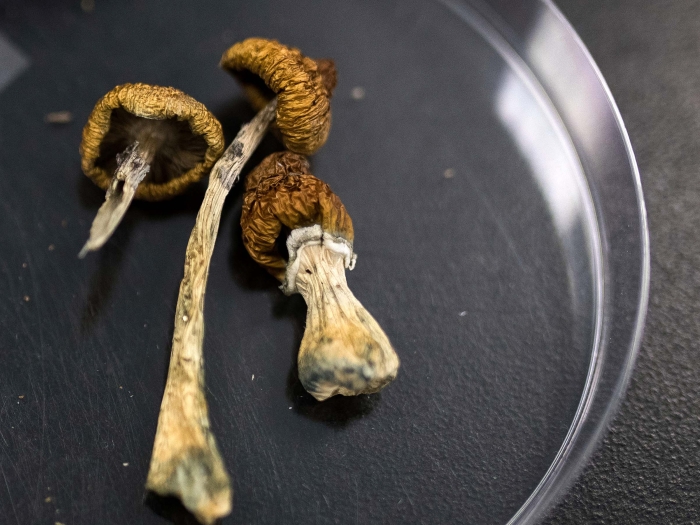A new study finds nearly one in three adults with lupus use prescription opioids to manage pain, despite a lack of evidence that opioids are effective for reducing pain from rheumatic diseases.
1:05 PM
Author |

Although there is little evidence that opioids effectively reduce pain from rheumatic diseases, a new study finds nearly one in three patients with lupus uses prescription opioids, often lasting longer than a year.
Lupus, a chronic autoimmune disease, often leaves those affected with inflammation and pain throughout the body.
"Rheumatic diseases, such as lupus, are a leading cause of chronic pain," says Emily Somers, Ph.D., Sc.M., an associate professor of rheumatology, environmental health sciences and obstetrics and gynecology at Michigan Medicine.
Somers is the lead author on a new study, published in the Centers for Disease Control and Prevention's Morbidity and Mortality Weekly Report, that examined prescription opioid use among adult patients with lupus in southeast Michigan.
"With the current opioid epidemic and evolving guidance related to opioid prescribing, we wanted to determine current levels of prescription opioid use in lupus," says Somers, a member of the University of Michigan Institute for Healthcare Policy and Innovation.
MORE FROM MICHIGAN: Sign up for our weekly newsletter
Opioid use among patients with lupus
The research team examined data from the Michigan Lupus Epidemiology & Surveillance (MILES) Program, a cohort of more than 650 patients with and without lupus from southeast Michigan.
This level of opioid use signals a need for healthcare providers to consider effective non-opioid pain management strategies in these patients and to familiarize themselves with guidelines for opioid tapering and discontinuation when appropriate.Emily Somers, Ph.D., Sc.M.
In the study of patients who shared a similar demographic background — 462 adults with lupus and 192 adults without lupus — 31% of patients with lupus were using prescription opioids during the study period (2014-2015) compared to 8% of adults without the condition.
In addition, 68% of the patients with lupus using prescription opioids were using them for more than one year, and 22% were on two or more different opioid prescriptions.
"These findings were alarming because one in three patients with lupus were using a prescription opioid, with the majority of those for longer than a year, even though opioids may not be providing benefits and have harmful side effects," Somers says.
"We were surprised to find such high-levels of prescription opioid use amongst patients with lupus and that they were over three times as likely to use prescription opioids than others in their community with similar sociodemographic backgrounds."
The study also found that patients with lupus who had at least one emergency department visit in the last year were twice as likely to use prescription opioids compared to those patients with lupus who had not visited the emergency department.
LISTEN UP: Add the new Michigan Medicine News Break to your Alexa-enabled device, or subscribe to our daily updates on iTunes, Google Play and Stitcher.
"It is important for clinicians caring for patients with lupus, including providers in the emergency department, to be aware of the high levels of prescription opioid use in lupus," Somers says.
She adds that patients with lupus may be particularly vulnerable to long-term side effects of opioids.
"In addition to their underlying disease, patients with lupus generally receive immunosuppressive and glucocorticoid therapies, which already put patients at a higher risk for known adverse effects related to long-term opioid use," Somers says.
Non-opioid pain management strategies
Somers notes that there can be several causes of pain in lupus, including a high prevalence of centralized pain, or fibromyalgia, among people living with lupus. The source of pain therefore needs to be diagnosed accurately in order to treat patients with lupus properly.
"Underused, but effective, non-opioid and non-drug strategies for pain management, as well as treatment directed at possible coexisting centralized pain syndromes, may be both safer and more effective than long-term opioids for reducing pain in this patient population," Somers says.
"Examples of non-drug pain management include physical activity and self-management education about the patient's chronic disease."
Somers and the research team hope this study inspires fellow health professionals to work towards strategies for reducing opioid use in patients with lupus, along with safer and more effective pain management.
"This level of opioid use signals a need for healthcare providers to consider effective non-opioid pain management strategies in these patients and to familiarize themselves with guidelines for opioid tapering and discontinuation when appropriate," Somers says.
Paper cited: Emily Somers, et al. "Prescription opioid use in a population-based cohort of patients with system lupus erythematosus (SLE) and persons without SLE: the Michigan Lupus Epidemiology & Surveillance (MILES) Program, 2014-2015" Morbidity and Mortality Weekly Report. DOI: 10.15585/mmwr.mm6838a2
For additional information on lupus diagnosis, disease management, treatment and research, please view the first ever National Public Health Agenda for Lupus. Somers and co-author, Afton Hassett, Psy.D., helped develop and contribute to the agenda, which was funded by the CDC, and distributed by the National Association of Chronic Disease Directors and the Lupus Foundation of America.

Explore a variety of healthcare news & stories by visiting the Health Lab home page for more articles.

Department of Communication at Michigan Medicine
Want top health & research news weekly? Sign up for Health Lab’s newsletters today!





